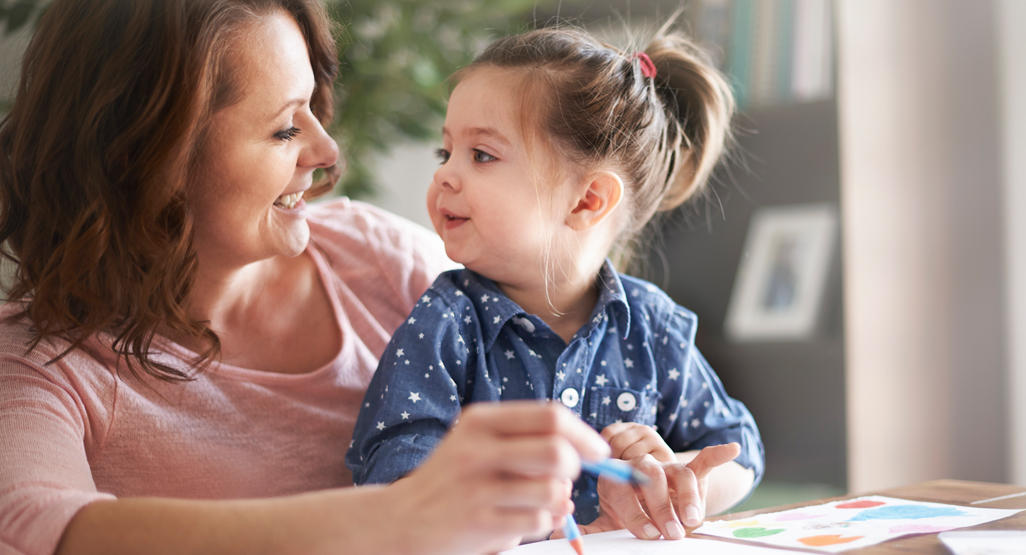I. Introduction

Language development is an essential aspect of a toddler‘s overall growth and development. It plays a pivotal role in their ability to communicate, express themselves, and understand the world around them. However, many parents face challenges in getting their toddlers to talk. This article aims to provide practical tips for parents to encourage their toddlers to talk, thus fostering their language skills.
II. Creating a Language-Rich Environment
A. Surrounding your toddler with language
One effective way to encourage language development in toddlers is by surrounding them with language. Talking to your child throughout the day, even if they can’t respond yet, helps them become familiar with the rhythms and patterns of conversation. Engaging in meaningful conversations with your toddler not only exposes them to new vocabulary but also helps them learn how to take turns and listen attentively.
Expanding on your toddler’s words and sentences is another strategy to foster their language development. When your toddler says a word or a short phrase, repeat it back to them and then add a few words or sentences to extend the conversation. This technique not only reinforces their words, but it also models how to build sentences and express more complex thoughts.
B. Reading and storytelling

Reading to toddlers is crucial for their language development. It helps them build vocabulary, understand sentence structure, and enhance their imagination. Choose age-appropriate books with colorful and engaging illustrations that capture your toddler’s attention. Engage them in interactive reading by asking questions, pointing at pictures, and encouraging them to retell the story in their own words.
Storytelling is another effective way to encourage language development. Use props, puppets, or dolls to act out stories and involve your toddler in the process. Encourage them to use their imagination and retell the story using their own words. This activity fosters creativity, language skills, and overall cognitive development.
C. Singing and rhyming
Music and rhymes have been shown to have a positive impact on language development in toddlers. Singing songs and reciting rhymes helps children develop an understanding of rhythms, sounds, and patterns in language. Choose age-appropriate songs and rhymes that are fun and engaging for your toddler. Incorporate them into daily routines such as bath time, mealtimes, or bedtime. Singing together not only encourages language development but also strengthens the bond between parent and child.
III. Building Vocabulary and Language Skills
A. Daily experiences and activities

Make the most out of daily experiences and activities to expand your toddler’s vocabulary and language skills. Describe what you’re doing, name objects, and explain the steps involved in different tasks. For example, while cooking, you can describe the ingredients, the actions you’re taking, and the smells and tastes involved. This not only builds vocabulary but also helps your toddler make connections between words and everyday experiences.
B. Playtime
Playtime is an ideal opportunity for language development. Engage your toddler in imaginative play and encourage them to use words to describe their actions and interact with their toys. Use open-ended questions to stimulate their thinking and language skills. For example, instead of asking, “Is this a ball?” ask, “What can you do with the ball?”
C. Social interactions
Encourage social interactions with other children and adults. Arrange playdates, join parent-and-child groups, or attend storytime at the library. These interactions provide opportunities for your toddler to practice their communication skills, learn from others, and build their vocabulary.
IV. Limiting Screen Time
It is important to limit screen time for toddlers as excessive use of screens can hinder language development. Instead, focus on engaging activities that provide opportunities for face-to-face interactions, such as talking, reading, singing, and playing. These activities stimulate cognitive, social, and language development more effectively than passive screen time.
A. Active listening and responding

Active listening is crucial in fostering communication in toddlers. When your child is trying to communicate with you, give them your full attention. Get down to their eye level, maintain eye contact, and show genuine interest in what they have to say. Respond appropriately, acknowledging their words and validating their feelings. Encourage further communication by asking follow-up questions or expanding on their statements. For example, if they say, “Look, bird!” respond with, “Yes, I see the bird. What color is it?”
B. Patience and avoiding pressure
Patience is essential when encouraging toddlers to talk. Give your child time to respond when they’re trying to communicate. Avoid interrupting or finishing their sentences for them, as this can hinder their language development. Instead, listen attentively and allow them to express themselves at their own pace. Avoid putting excessive pressure on them to perform or achieve milestones. Every child develops language skills at their own pace, and pushing them too hard can have a negative impact on their confidence and willingness to communicate.
It’s also important to avoid negative reactions or excessive correction if your child is struggling with language skills. Instead, provide gentle guidance and offer support. Repeat their words or sentences back to them, emphasizing correct pronunciation or grammar without criticizing or demeaning them. Focus on their effort and progress rather than solely on correcting their mistakes.
C. Seeking professional help if necessary

While it’s common for toddlers to have variations in their language development, it’s important to recognize any signs of speech delay or difficulties. If you notice significant delays or struggles in your child’s ability to communicate, it may be beneficial to consult with a speech-language pathologist. These professionals are trained to assess and provide guidance for language-related issues. They can offer strategies and interventions tailored to your child’s specific needs, helping them overcome any challenges they may face in their language development journey.
Conclusion
Encouraging toddlers to talk involves creating an environment that promotes communication, supporting their efforts, and providing opportunities for language development. By articulating needs and desires, engaging in pretend play and role modeling, and encouraging interaction with peers, parents can play a crucial role in fostering language skills. Additionally, actively listening, being patient, and seeking professional help when needed can further support their language development journey. Remember, every child develops at their own pace, and with patience, consistency, and nurturing, they will continue to grow and flourish in their communication abilities.
